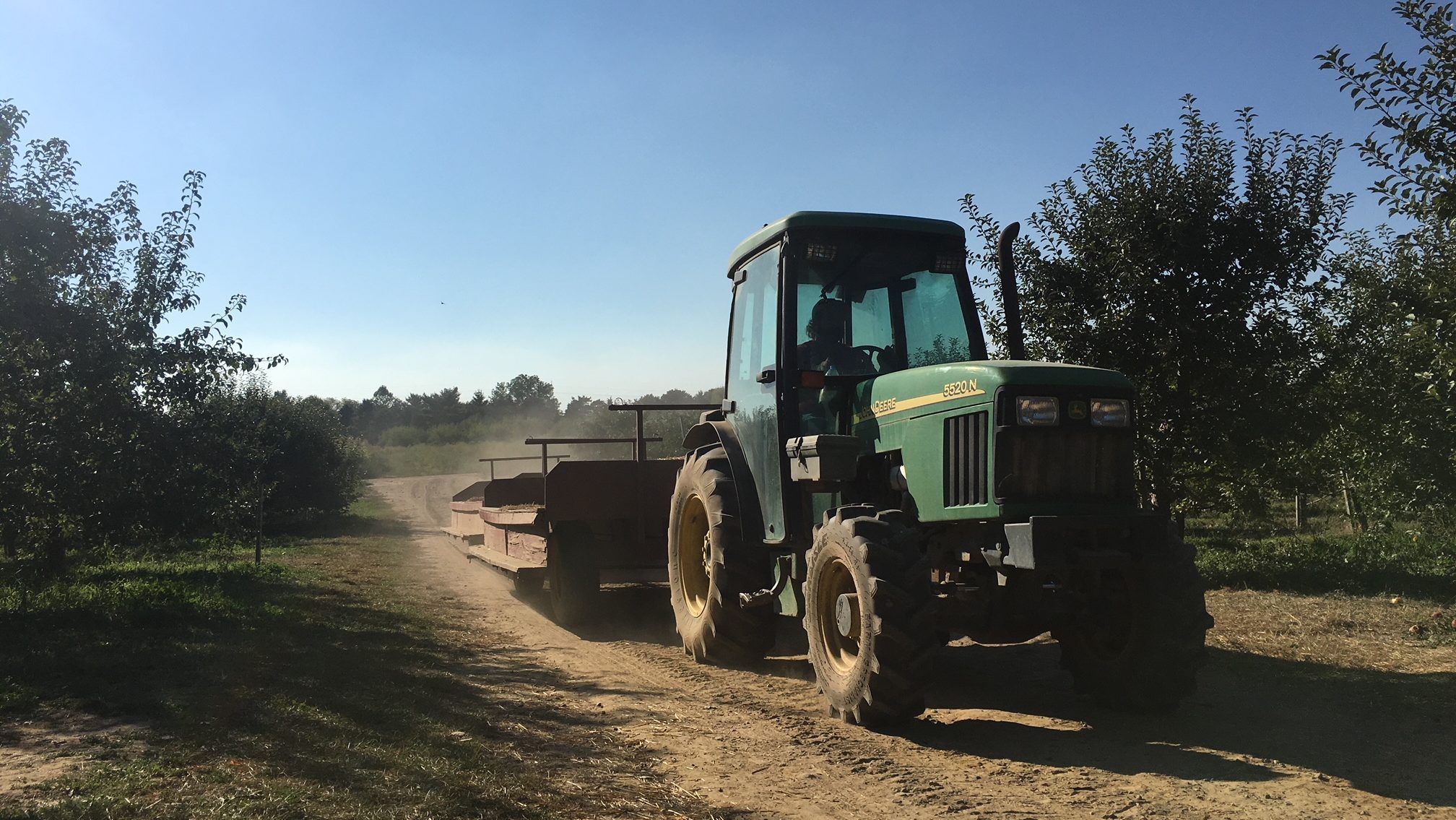Michigan’s Cherry, Apple Farmers Churn Through Impact of COVID-19
While agriculture is considered an essential industry, fruit growers across the state worry they won’t have the equipment or labor for a successful harvest this year.

With agriculture designated as an essential industry, fruit farmers across Michigan are currently at work preparing crops for this year’s harvest.
Molly Woods is executive director of the Cherry Industry Administrative Board. She says while the economy is down, the news has not been all sour for Michigan’s tart cherry growers.
Click on the player above to hear WDET’s Alex McLenon report on the issues facing Michigan’s cherry and apple growers.
“Our industry produces a lot of shelf-stable products,” Woods says. “So we’ve seen a little bit of an uptick in consumption actually because people are cooking more at home now.”
Product continues to move off store shelves and the fruit processing supply chains remain operational. However, officials from Michigan’s cherry and apple industries say farmers are feeling the impact of COVID-19 in other areas.
“Hopefully we’ll be able to get some necessary equipment out to the growers.” — Diane Smith, Michigan Apple Committee
According to the Michigan Department of Agriculture and Rural Development, the state’s fruit growers have a direct economic impact of more than $485 million annually. That number could be less in 2020, if the COVID-19 pandemic impacts the upcoming fruit harvest.
PPE for Farmers
One of the challenges facing Michigan’s cherry and apple farmers is securing enough personal protective equipment, known as PPE, for its workers.
When handling certain kinds of pesticides, fruit and vegetable farmers rely on the same N95 respirators that hospitals do. However those masks are facing back-orders nationwide and recently, the state Department of Agriculture put out a memo warning farmers that PPE orders may go unfilled into the summer.
Michigan Apple Committee executive director Diane Smith says the organization is working with government officials on the issue.
“They’re gauging right now what the need is for that PPE,” Smith says. “Hopefully we’ll be able to get some necessary equipment out to the growers.”
Different Harvesting Techniques
The COVID-19 pandemic also threatens to impact farmers’ access to laborers needed to harvest crops.
Woods says it’s something those in the cherry industry are thinking about.
“We’re very concerned about what’s going to play out here. Is there going to be border closings where those workers aren’t able to come in to the country?” — Diane Smith, Michigan Apple Committee
Growers and processors are “feeling pretty comfortable about where labor is, but not 100% comfortable,” Woods says.
One benefit the cherry industry has is that techniques now used when harvesting are less labor dependent. When collecting the fruit, machines grab onto and shake the trees. The cherries fall onto a conveyor belt which leads to a collection bin.
By contrast, the apple industry does not rely on machinery to do the bulk of its work. All of the crops are hand-picked.
Smith says that means Michigan’s apple farmers rely on migrant workers to harvest crops.
Guest Workers May Not Arrive
The H2A program is a federally-run initiative that allows immigrants “guest workers” to enter the country on a short-term basis to work in agriculture. Smith says it’s a popular option among Michigan’s Apple Farmers for recruiting labor.
“They get temporary visas through the Department of Labor to come up and do that work,” Smith says. “And pretty much most of the big bulk of them do arrive right before harvest.”
The US borders with Mexico and Canada are currently closed, and visa processing services have been suspended through June 21st. While harvest season for the apple industry isn’t until September, the time window aligns with when some medical experts speculate a second outbreak of COVID-19 could flare up.
“We’re very concerned about what’s going to play out here,” Smith says. “Is there going to be a second wave? Is there going to be border closings where those workers aren’t able to come in to the country?”
Amid the uncertainty, the Department of Homeland Security has warned farmers may not receive all of the temporary workers they applied for this year.
Trusted, accurate, up-to-date
WDET is here to keep you informed on essential information, news and resources related to COVID-19.
This is a stressful, insecure time for many. So it’s more important than ever for you, our listeners and readers, who are able to donate to keep supporting WDET’s mission. Please make a gift today.

